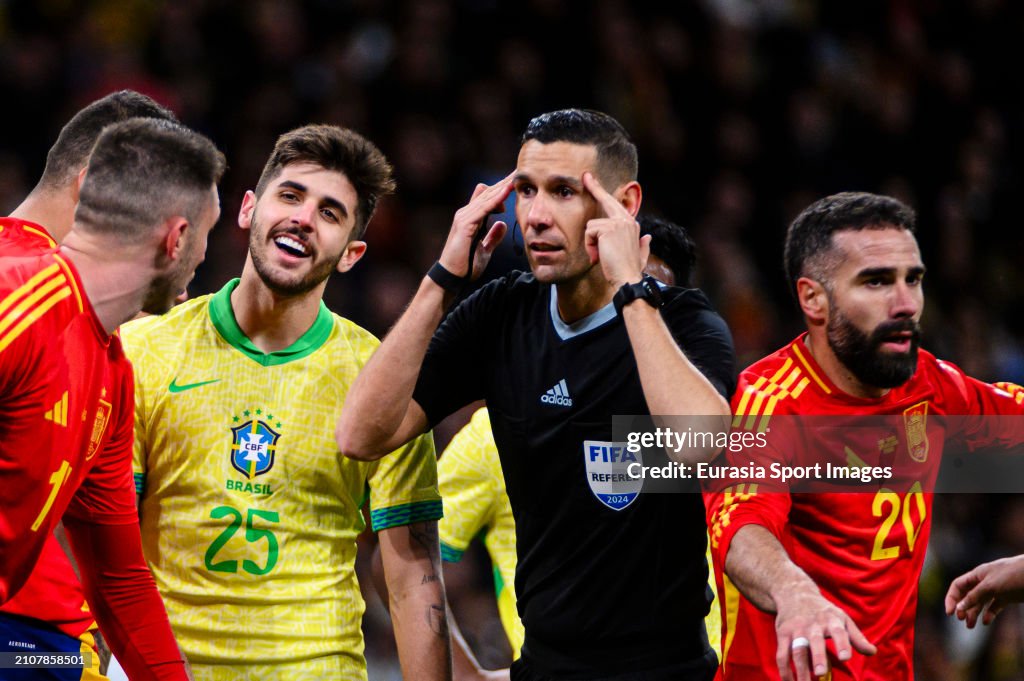In a high-stakes friendly that ended in a dramatic 3-3 draw, Spain and Brazil's footballing prowess was on full display, but it was the officiating by Portuguese referee António Nobre that stole the spotlight.

The friendly encounter between Spain and Brazil, which ended in a thrilling 3-3 draw, became as much a topic of controversy off the pitch as it was a spectacle on it, largely due to the officiation by Portuguese referee António Nobre.
His decisions in critical moments of the match have sparked widespread debate and dissatisfaction, particularly among Brazilian supporters and commentators, who found fault with two penalty decisions that played a pivotal role in the match's outcome.
The first contentious moment came early in the match when Nobre awarded a penalty to Spain following what he perceived as a foul by João Gomes on Lamine Yamal. This decision, made just 11 minutes into the game, allowed Rodri to score, putting Spain ahead early on. The absence of VAR in this friendly match meant that the decision stood without the possibility of video review, fueling debates and dissatisfaction among fans and pundits alike. The Brazilian camp argued that the contact did not warrant a penalty, suggesting that the referee's decision was unduly harsh and possibly incorrect.
As the match approached its climax, Nobre's decision-making came under the spotlight once again when he awarded another penalty to Spain, this time for an alleged foul by Lucas Beraldo on Dani Carvajal. This second penalty decision further incensed Brazilian fans and officials, who felt aggrieved by what they perceived as inconsistency and unfairness in the refereeing. Such moments are particularly scrutinized in international friendlies, where the stakes of national pride and preparation for competitive fixtures amplify the impact of every call made on the field.
Adding to the controversy, "TNT Sports Brasil" took to social media to voice its criticism of Nobre's performance. In a post that combined humor with pointed critique, they showcased a photograph of the referee alongside the players involved in the incidents, labeling Nobre as the match's standout performer for Spain. This sarcastic commentary highlights the level of frustration felt by Brazilian supporters regarding the referee's influence on the game's outcome.
These incidents have sparked a broader conversation about the role of officiating in football, the implementation of VAR in international friendlies, and the subjective nature of foul play. While referees have a challenging job, ensuring fairness and objectivity in fast-paced and highly competitive environments, matches of this profile underscore the importance of every decision made on the pitch. As Spain and Brazil continue to analyze their performances in this thrilling draw, the discussion around the refereeing will likely persist, serving as a reminder of the complexities and controversies that can arise in the beautiful game.







